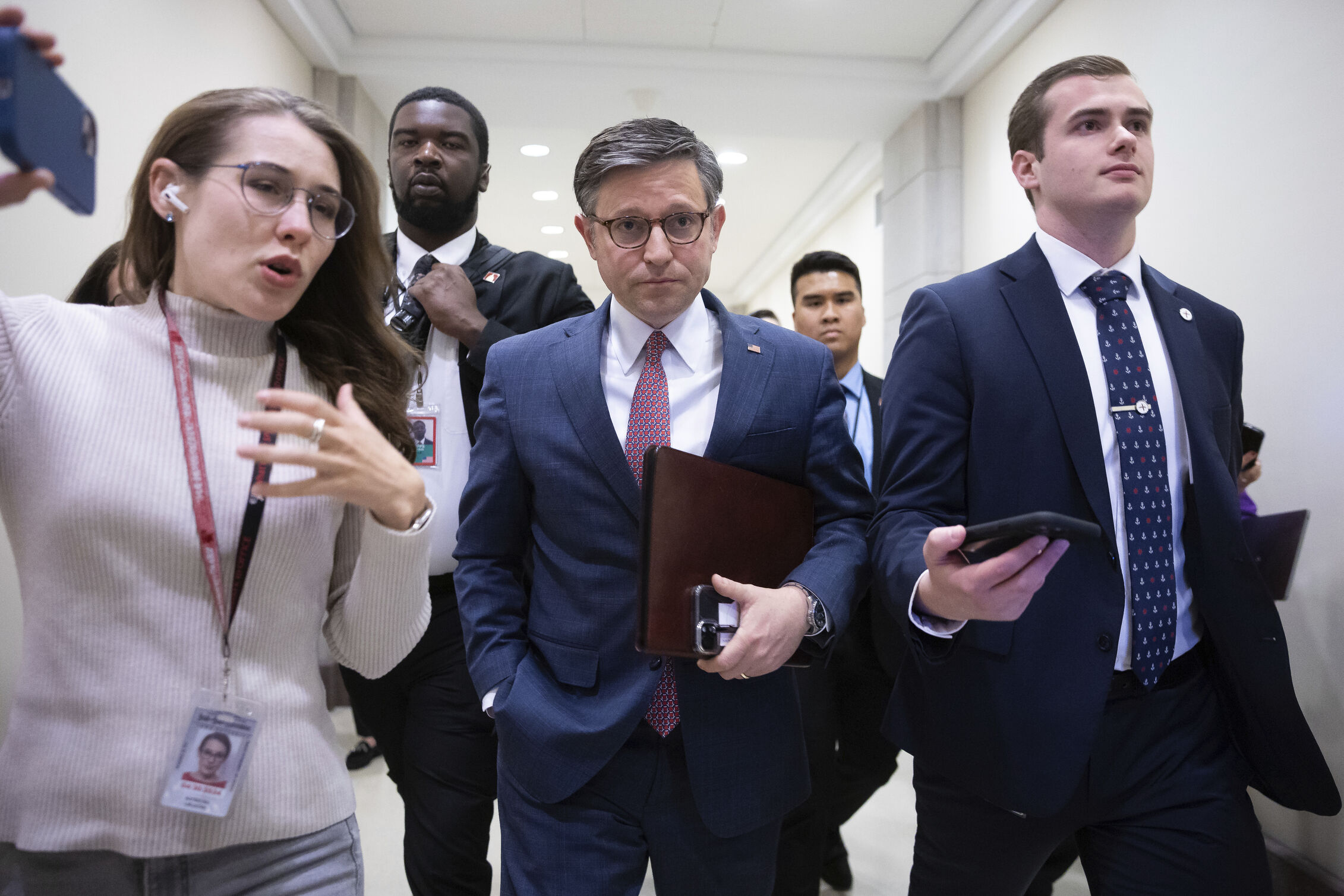Is Trump a Russian Agent? A Legal Analysis
An amazing debate is taking place among serious analysts and journalists in the United States regarding the relationship between the Republican nominee for President and the Russian state.
Published by The Lawfare Institute
in Cooperation With

An amazing debate is taking place among serious analysts and journalists in the United States regarding the relationship between the Republican nominee for President and the Russian state.
This debate is not taking place on the fringes, or in internet comments, but instead in the pages of the New York Review of Books, the Washington Post, the New York Times, Slate, and elsewhere. The participants are undeniably substantive—editors of famed magazines, Pulitzer Prize winners, and authors of esteemed books on Russia, its leader, and its history.
This high-power group is debating whether Donald Trump is a tool, wittingly or unwittingly, of Russian President Vladimir Putin.
On the “yes” side is a remarkable lineup of intellectual firepower. There’s this remarkable essay by Franklin Foer; there’s this piece from Anne Applebaum; there’s this one from Paul Krugman; and there’s this from Josh Marshall. On the other side of the ledger, in addition to the weird comments both from official Russian sources and from Trump himself, is this essay by Putin foe Masha Gessen, who sees the entire Trump-Putin meme as a distraction from the deeply American dangers of Trump.
The fact that serious people can have a serious discussion of whether a major party candidate for president is operating on behalf of an adversarial foreign nuclear power is alone gobsmacking. And we don’t propose to resolve the dispute here, at least not in any final kind of way.
We do think, however, that the discussion would benefit from slightly greater clarity of terms. So as a public service, we are offering the following analysis of the Trump-Putin evidence against several different legal and non-legal standards.
Question #1: Is Donald Trump an Agent of a Foreign Power Targetable Under FISA?
Answer: Not On the Current Record.
One way of asking whether a U.S. person is a Manchurian Candidate is to look at whether he meets the criteria for surveillance under the Foreign Intelligence Surveillance Act (FISA). The fact that we are even writing this sentence about a presidential candidate is a reflection of what a strange year 2016 is.
FISA defines an “agent of a foreign power,” in relevant part, as follows: any person who “knowingly engages in clandestine intelligence gathering activities for or on behalf of a foreign power, which activities involve or may involve a violation of the criminal statutes of the United States”; or who “pursuant to the direction of an intelligence service or network of a foreign power, knowingly engages in any other clandestine intelligence activities for or on behalf of such foreign power, which activities involve or are about to involve a violation of the criminal statutes of the United States.”
The DNC hack provides considerable evidence that Trump is the beneficiary of the clandestine activity of “a foreign power.” And there is plenty of evidence that Trump has spoken in a fashion that would reasonably please the foreign actor in question. But there is no evidence at all that Trump has engaged in or abetted clandestine espionage activity himself, much less that he has done so in probable violation of any U.S. law.
So if the Manchurian Candidate question is one of whether Trump is a Putin agent within the meaning of FISA, the public record certainly does not support that.
Question #2: Is Trump an Agent of a Foreign Principal Under FARA?
Answer: Not on the current record.
Under the Foreign Agent Registration Act (FARA), every non-exempt agent of a foreign principal is required to register with the Department of Justice.
Donald Trump is clearly a “person” within the meaning of the Act (less obviously in other senses of the word). His corporations, partnerships and organizations also qualify, though we’ll treat him as an individual for now. A foreign principal includes “a government of a foreign country and a foreign political party” or any non-US citizen outside the United States (subject to exceptions). Here, the Russian government, Vladimir Putin, and most of the various associated actors clearly qualify.
The important legal question under FARA is whether Trump (a person) qualifies as an “agent” of Russia (a foreign principal). An agent of a foreign principal is any person who acts “at the order, request, or under the direction or control of” that principal, anyone “whose activities are directly or indirectly supervised, directed, controlled, financed, or subsidized” by that principal and who then “engages within the United States in political activities for or in the interest of such foreign principal.” Separately, an agent of a foreign principal under FARA is “any person who agrees, consents, assumes, or purports to act as, or who is or holds himself out to be … an agent of a foreign principal” as otherwise defined.
Based on the facts in evidence, Donald Trump does not qualify as a foreign agent within the Act. Previously, FARA was primarily focused on countering propaganda and did not require a direct nexus or connection. But the law has been amended to more narrowly define the requirements for an agent relationship. While Trump has ties to Russia and has expressed surprising affinity and admiration for its strongman leader, there is no evidence that he is actually working under the direction or control of Russia or Putin and he expressly disavows that characterization. On the present record, at least, to borrow language from the ISIS discussion, Trump seems to be more inspired by Putin than directed by him. (Note: it is more plausible that particular Trump campaign advisors—who are engaging in “political activity” by virtue of their participation in his campaign—would be required to register under the Act.)
If Trump were to be deemed an agent of a foreign power, that would be a rather serious matter. While the United States has not successfully prosecuted any criminal violations of FARA in a half-century, it does routinely seek civil enforcement against covered individuals who fail to register. Moreover, if Trump were a foreign agent within the Act and actually won the Presidency, he would be in violation of 18 USC 219, which prohibits any “public official” from being an agent of a foreign principal. Public officials include Members of Congress and “an officer or employee or person acting for on on behalf of the United States, or any department, agency or branch of Government thereof… in any official function.” Being President of the United States would appear to qualify.
Question: Is Russia Actively Supporting Trump’s Candidacy?
Answer: Damn Straight!
The evidence that Russia is actively supporting Trump’s candidacy using covert intelligence means seems, at this point, pretty strong. This does not mean, of course, that Trump is a Russian agent. But apparently without his direction or control, Russian intelligence agencies have a laid a bet on the man. Susan summarized the evidence of this the other day:
Defense One lays out the powerful, though not definitive, public evidence of Russian involvement. The New York Times offers a somewhat more tempered assessment. It is important to recognize that the strongest evidence regarding attribution was made public long before the most recent batch of emails was released:
Director of National Intelligence James Clapper reported in May that the intelligence community had evidence that foreign governments were targeting campaigns.
In June, Crowdstrike published its account, specifically naming Russian state actors as behind the DNC hack.
While the Russians have long been known to use information and disinformation campaigns to influence foreign elections, there was initial skepticism regarding the degree of Crowdstrike’s certainty. However, the discovery of incriminating metadata—first noticed by Matt Tait who tweets under @pwnallthethings—and other evidence quickly corroborated the Crowdstrike assessment.
There are well-documented connections between Wikileaks—the chosen vehicle for the leak release—its founder Julian Assange, and the Russian state apparatus.
Paired with the technical indicators, the sum total of evidence is about as close to a smoking gun as can be expected where a sophisticated nation state is involved.
Since then, the evidence has only grown stronger. The New York Times yesterday reported that “American intelligence agencies have told the White House they now have ‘high confidence’ that the Russian government was behind the theft of emails and documents from the Democratic National Committee.”
Even if there were no covert actions, the overt ones alone are pretty telling. Putin and others in the Russian leadership have repeatedly praised Trump. They are not playing their cards close to their vests about liking him and disliking his opponent. In U.S. presidential elections, the distinction between working on behalf of one candidate versus against the other is largely semantic. Harm done to one of the candidates in a two-party system necessarily benefits the other. So it is difficult to understand how much Russia is motivated by liking Trump and how much it is motivated by hating Clinton. Probably a bit of a both.
Bottom line: Trump may not be acting (legally speaking) on behalf of Russia, but Russia is acting on behalf of him.
Question: Is Trump a “Useful Idiot” for Putin?
Answer: Yup.
The phrase “useful idiots” (полезные дураки, in Russian) is often attributed to Lenin—though probably not accurately—and refers to people in the West who can be counted upon by virtue of naivete or stupidity to act on Russia’s behalf while not being active agents. This is probably the best way to understand the relationship between Trump and Putin. The evidence of a bromance between them is uncontestable. The evidence of an affinity in personality and strongman nastiness is as well.
Moreover, the evidence is neither contested or contestable that Trump has taken public positions exceedingly favorable to Russia and far outside of the American mainstream. As Foer points out at great length in his excellent piece, Trump has repeatedly sought to do business in Russia and acquired financing from Russian sources. He has proposed Russia-friendly policies, even to the point of proposing to abandon NATO allies. He has praised Putin repeatedly. And he has surrounded himself with people who have extensive histories representing the interests of those close to Putin. Only today, Trump openly sided with Russian intelligence against the United States and urged further spying.
Small wonder that Russia has responded by seeking to advance Trump’s cause domestically, both by covert and overt means. Who needs an agent when you get so much for free?






